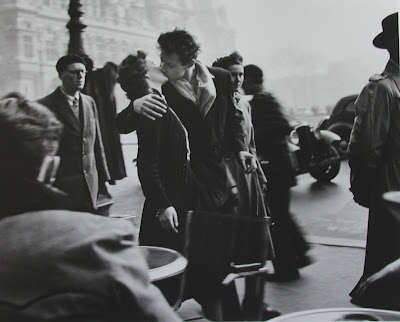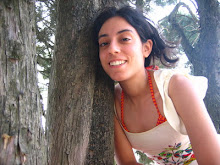When the stars go blue - The Corrs & Bono
[Bono] Dancing where the stars go blue
[Andrea] Dancing where the evening fell
[Bono] Dancing in your wooden shoes
[Andrea] In a wedding gown
[Bono] Dancing out on 7th street
Dancing through the underground
[Andrea] Dancing little marionette
[Both] Are you happy now?
Where do you go when you’re lonely?
Where do you go when you’re blue?
Where do you go when you’re lonely ? I’ll follow you…
[Bono] When the stars go blue (bluuuuue)
When the stars go blue (bluuuuue)
[Andrea] When the stars go blue (bluuuuue)
[Bono] When the stars go blue
Laughing with your pretty mouth
[Andrea] Laughing with your broken eyes
[Bono] Laughing with your lover’s tongue
[Both] In a lullaby
Where do you go when you’re lonely?
Where do you go when you’re blue?
Where do you go when you’re lonely ? I’ll follow you…
[Bono] When the stars go blue (bluuuuue)
When the stars go blue (bluuuuue)
[Andrea] When the stars go blue (bluuuuue)
[Bono] When the stars go blue
[Andrea] When the stars go blue (bluuuuue)
(bluuuuue) when the stars go (bluuuuue)
[Bono] When the stars go blue
[Both] Where do you go [Bono] when you’re lonely?
[Andrea] Where do you go when you’re blue yeah?
Where do you go when you’re lonely ? I’ll follow you…
Escrito por: Ryan Adams
Inserido no álbum “The Corrs Live In Dublin”
terça-feira, 26 de fevereiro de 2008
E tu para onde vais?...
Escrito por
Joana
em
22:11
0
comentários
![]()
segunda-feira, 25 de fevereiro de 2008
Não tires o rebuçado à criança. Aquela criança que brinca num mundo de fantasia a que um dia pertence(re)mos. Deixa que ela pinte o céu ainda de azul e com um sol sorridente, e que arregale os olhinhos à procura de quem fala através do vento e que rebole satisfeita pela areia: "Olha sou um croquete!!". Deixa que ela te puxe carinhosamente os cabelos, que te tire os óculos (se tiveres) ou o nariz, tanto faz! Deixa que te abrace e em teu ombro adormeça, deixa que leve o ursinho velho, sujo para onde quer que for... Só por tudo isto não lhe roubes o rebuçado, não!
Joaninha 25/II/2008
Escrito por
Joana
em
19:09
0
comentários
![]()
sábado, 23 de fevereiro de 2008
Gosto de ti calada porque estás como ausente
e me ouves de longe, e esta voz não te toca.
Parece que os teus olhos foram de ti voando
e parece que um beijo fechou a tua boca.
Como todas as coisas estão cheias da minha alma
tu emerges das coisas cheias da alma minha.
Borboleta de sonho, pareces-te com a minha alma
e pareces-te com a palavra melancolia.
Gosto de ti calada e estás como distante
E estás como queixando-te, borboleta em arrulho.
E ouves-me de longe, e esta voz não te alcança:
vais deixar que eu me cale com o silêncio teu.
Vais deixar que eu te fale também com o teu silêncio
claro como uma lâmpada, simples como um anel.
Tu és igual à noite, calada e constelada.
O teu silêncio é de estrela, tão longínquo e tão simples.
Gosto de ti calada porque estás como ausente.
Distante e dolorosa como se houvesses morrido.
Uma palavra então, um teu sorriso bastam.
E eu estou alegre, alegre porque não é verdade.
Pablo Neruda
Poema n.º 15
In Vinte Poemas de Amor
e Uma Canção Desesperada
Escrito por
Joana
em
20:08
0
comentários
![]()
domingo, 17 de fevereiro de 2008
Um quadradinho de chocolate...

Chocolate no pão, chocolate no leite, chocolate para mexer o café, chocolate para depois do café, chocolate feito copo para beber ginjinha, chocolate para barrar, chocolate para fazer mousse, chocolate...
Chocolate desfazendo-se na boca.
Chocolate através da imagem fazendo crescer água na boca.
(António Campos Leal)
Afinal o Festival do Chocolate não é mais que uma boa desculpa para ir visitar essa linda vila histórica, eleita uma das sete maravilhas de Portugal, que abre as portas a todos os que se querem deliciar ou simplesmente passear!

Convido todos a dar um saltinho a Óbidos, ao Festival de Chocolate!!! Eu fui e gostei imenso!!!
http://www.festivalchocolate.cm-obidos.pt/
Escrito por
Joana
em
13:09
0
comentários
![]()
quinta-feira, 14 de fevereiro de 2008
Le Baiser du Trottoir

Robert Doisneau liked to refer to himself as a "pecheur d'images," a fisher of images. He immersed himself in his surroundings where he waited to catch the right shot. As one of the most famous French photographers of his day, Doisneau relied on his intuition rather than rational thinking. He took pictures based on his instinct at the moment they occurred.
In 1950 he included one of his photographs, The Kiss on the Sidewalk (Le Baiser du trottoir), in Life magazine. The photograph of a man and woman kissing on a populated street in Paris (by the Hotel de Ville) has become his most famous works. Not only does it represent love and romance, it also defines Paris as the city of love.
Escrito por
Joana
em
20:25
0
comentários
![]()
sexta-feira, 8 de fevereiro de 2008
Ilusões!!!!




A genialidade de Maurits Cornelis Escher (1898-1972) deixa qualquer um sem palavras... confesso que discordo do que se lia num relatório da escola que Escher frenquentava aos 21 anos: "... a este jovem falta fantasia e ideias espontâneas, é demasiado pouco artista."
Bem as imagens acima falam por si!!!
Deixo algumas frases do Escher que achei interessantes:
"The things I want to express are so beautiful and pure"
"I could fill an entire second life with working on my prints."
"So let us then try to climb the mountain, not by stepping on what is below us, but to pull us up at what is above us, for my part at the stars"
O trabalho do artista holandês pode ser visto em Den Haag (Haia), na Holanda! Para quem acha que isso fica um pouco fora de mão talvez estes sites matem um pouco da curiosidade...
http://www.escherinhetpaleis.nl/
http://www.mcescher.com/
Já agora faz hoje um ano que parti nessa grande aventura rumo à Holanda, em Erasmus!!
Escrito por
Joana
em
20:49
1 comentários
![]()
terça-feira, 5 de fevereiro de 2008
Mais um cheirinho de música...
... mas desta vez, muito original!!!
The Vegetable Orchestra performs music solely on instruments made of vegetables. Using carrot flutes, pumpkin basses, leek violins, leek-zucchini-vibrators, cucumberophones and celery bongos, the orchestra creates its own extraordinary and vegetabile sound universe. The ensemble overcomes preserved and marinated sound conceptions or tirelessly re-stewed listening habits, putting its focus on expanding the variety of vegetable instruments, developing novel musical ideas and exploring fresh vegetable sound gardens.
What is so special in the sound of vegetable instruments
we believe that we can produce sound that cannot be (easily) produced by other instruments. you can hear the difference. it sometimes sounds like animals, sometimes just like abstract sounds.
we explored these abstract sounds in cd, which is inspired by electronic sounds featured in contemporary electronic music.
What do you do with the vegetables when you're done with them?
part of the vegetables which are left over after preparing the instruments go into the vegetable soup which is served to the audience after the concert.
part of the instruments and other remaining vegetables we give to the audience after the concert.
and another part goes into the organic waste.
Quem quiser saber mais: http://www.gemueseorchester.org/
Tem uns videos engraçados!
Escrito por
Joana
em
13:30
0
comentários
![]()

